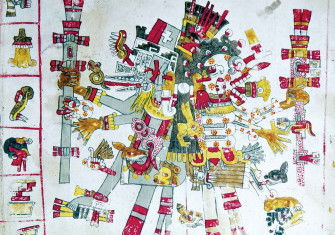‘In the Shadow of Quetzalcoatl’ by Merilee Grindle review
In the Shadow of Quetzalcoatl: Zelia Nuttall & the Search for Mexico’s Ancient Civilizations by Merilee Grindle depicts a woman ahead of her time, yet very much a product of it.

‘If Mexicans will make stupid laws and try to prevent archaeology in the North from growing, then these rules will be broken’, wrote the American archaeologist Alfred Tozzer from the Yucatán Peninsula in 1904. ‘It is almost a duty to take everything one can from the country.’ Such were the attitudes of the European and North American pioneers of archaeology and anthropology. Their era was the age of empire – empires emanating from Europe – and they easily reconciled their dedication to the study of ancient societies with the conviction that such societies were innately inferior to their own. As Merilee Grindle puts it, this was a time when ‘elites asserted their rights to take possession of the past’.
It was also ‘a time when Zelia Nuttall was famous’, something which is no longer true. Born in 1857, Nuttall was a native Californian whose father was Irish and grandmother Mexican. She played crucial roles in the dawning development of anthropology, specifically the study of ancient Mexican cultures such as that of the Aztecs. She wrote well over 100 papers and articles during the final two decades of the 19th century and the first three decades of the 20th. The British Library’s Codex Nuttall, an ancient Mexican manuscript, is named after her. Before 1903 she was based in San Francisco but travelled extensively and lived in various European cities. After that, until her death in 1933, she lived in Coyoacán, just outside Mexico City, aside from seven years when the Mexican Revolution forced her into temporary exile in England and San Francisco.
Grindle does not allow discursions into Nuttall’s scholarly interests to slow down the strong narrative pace of her book. It reminded me of William Boyd’s novels: we follow from birth to death a flawed but ultimately heroic central protagonist. Specialised knowledge of a particular profession provides captivating details as our protagonist navigates the events and personalities of world history, in this case the World’s Columbian Exposition in Chicago (1893), the Great San Francisco Earthquake (1906) and the Mexican Revolution (1910-17).
Grindle is not herself a specialist in the Aztecs, Mayas or similar topics, so there are occasional factual or interpretive missteps. But they are too minor to mar either the book’s narrative momentum or her deft handling of early anthropology’s colonialist collecting practices, racist rationales and sexist exclusionism. Those thorny themes are always present, but never overstated. As a result, Grindle successfully delivers Nuttall to us as a flawed heroine.
A divorced, single mother, dependent on men and forced to battle their egos, Nuttall nurtured powerful female allies (such as Phoebe Apperson Hearst) and deployed her privilege in pursuit of her career, but not always to help others. She was still writing scholarly papers until the end, but when she died her Mexican housekeeper had not been paid for three years. She spotted ahead of her time that the Aztecs were not the bloodthirsty savages that the Spanish conquistadors accused them of being, writing in 1897 that she did ‘not know any nation that was their superior’. And yet she failed to question conquistador claims of Maya cannibalism, while her praise of past societies remained within a progressivist framework, whereby cultures and races exist on a linear progression from primitive to advanced. As Grindle notes, in the end, Nuttall ‘did not escape the hubris of her generation’. Yet, as much as we may wish to judge that generation, we are left reluctant to judge Nuttall – and that is this book’s ultimate achievement.
- In the Shadow of Quetzalcoatl: Zelia Nuttall & the Search for Mexico’s Ancient Civilizations
Merilee Grindle
The Belknap Press, 400pp, £28.95
Buy from bookshop.org (affiliate link)
Matthew Restall is Sparks Professor of History at Penn State University and author of When Montezuma Met Cortés (Ecco, 2018) and The Maya (Oxford University Press, 2020).






